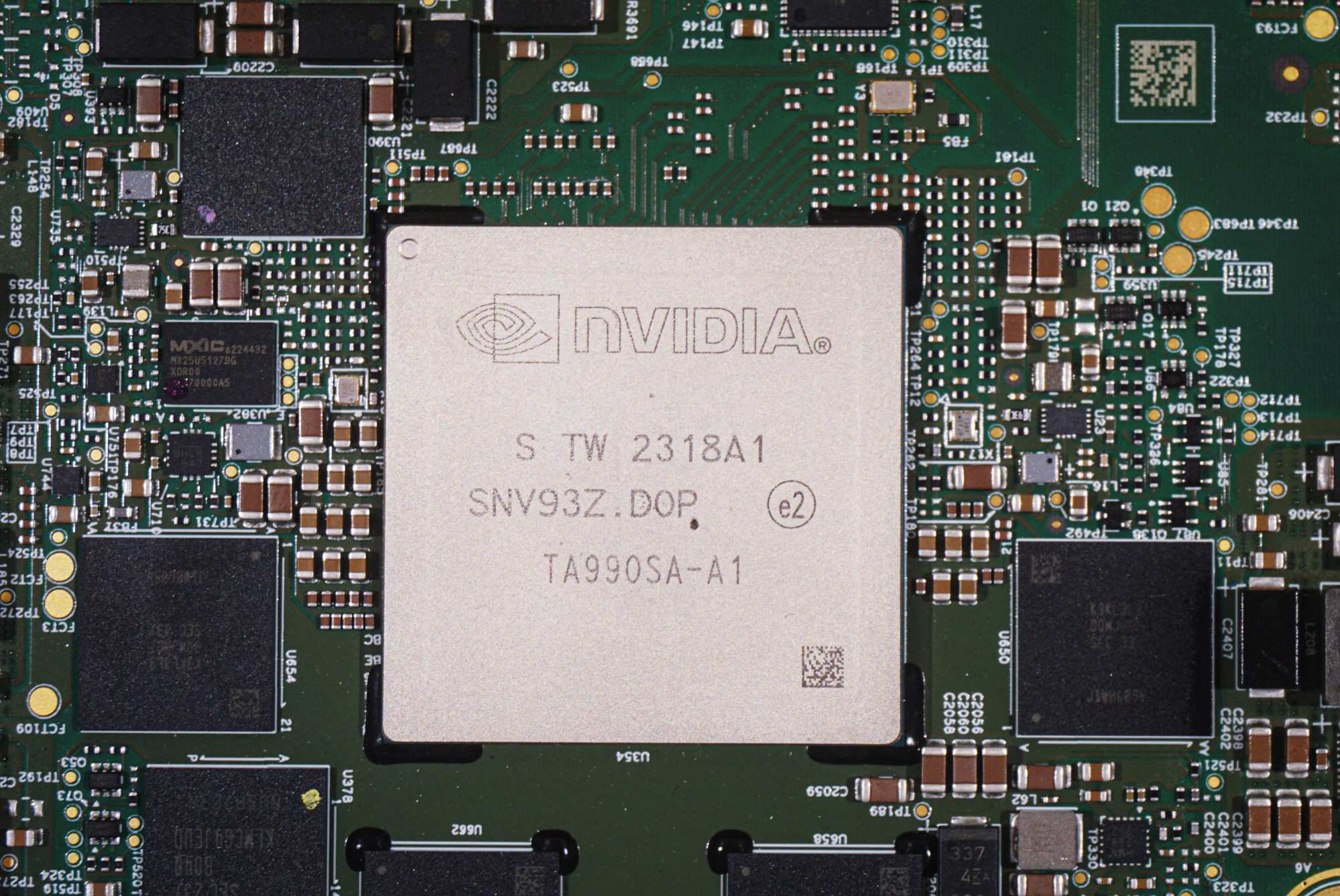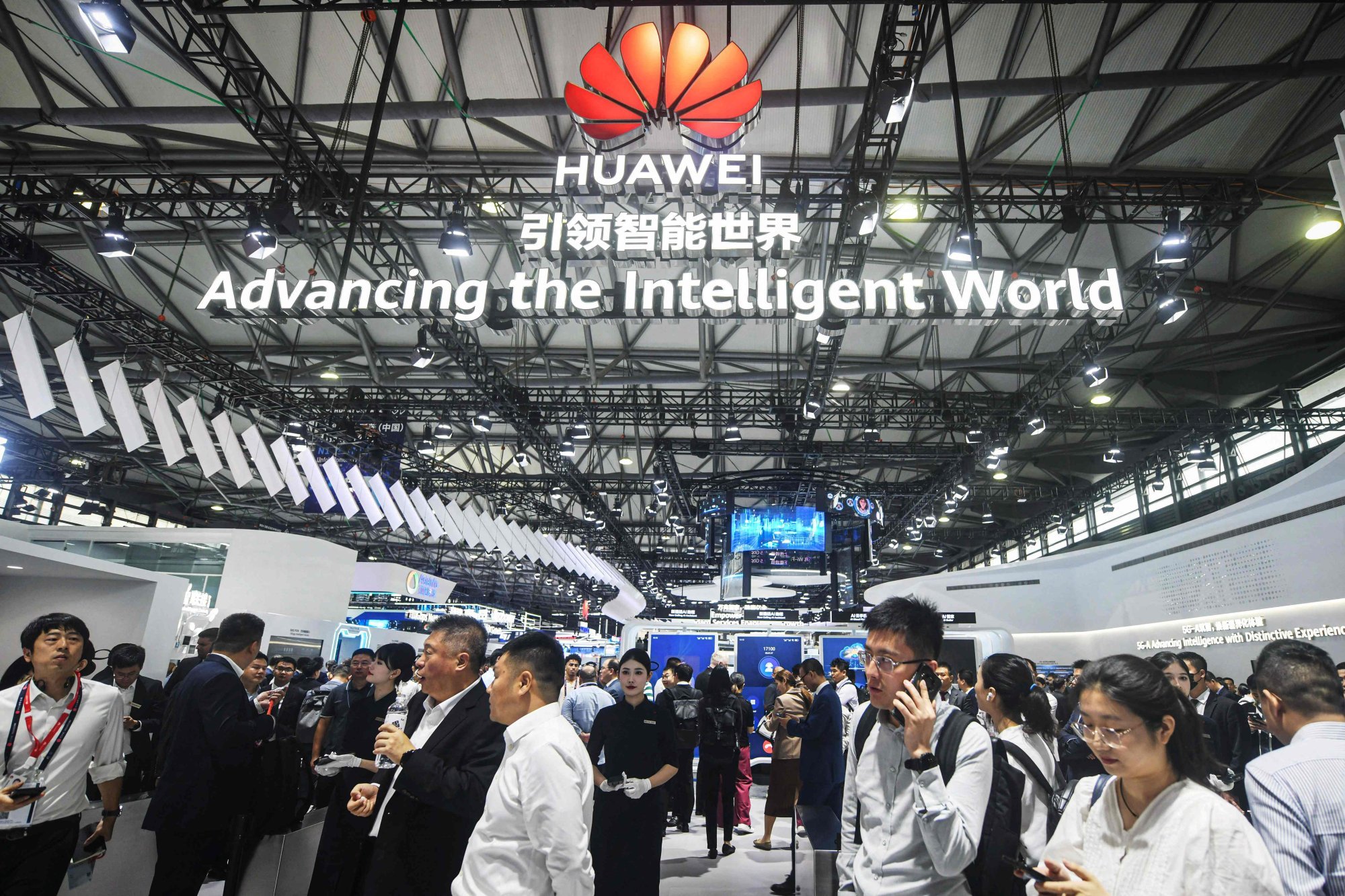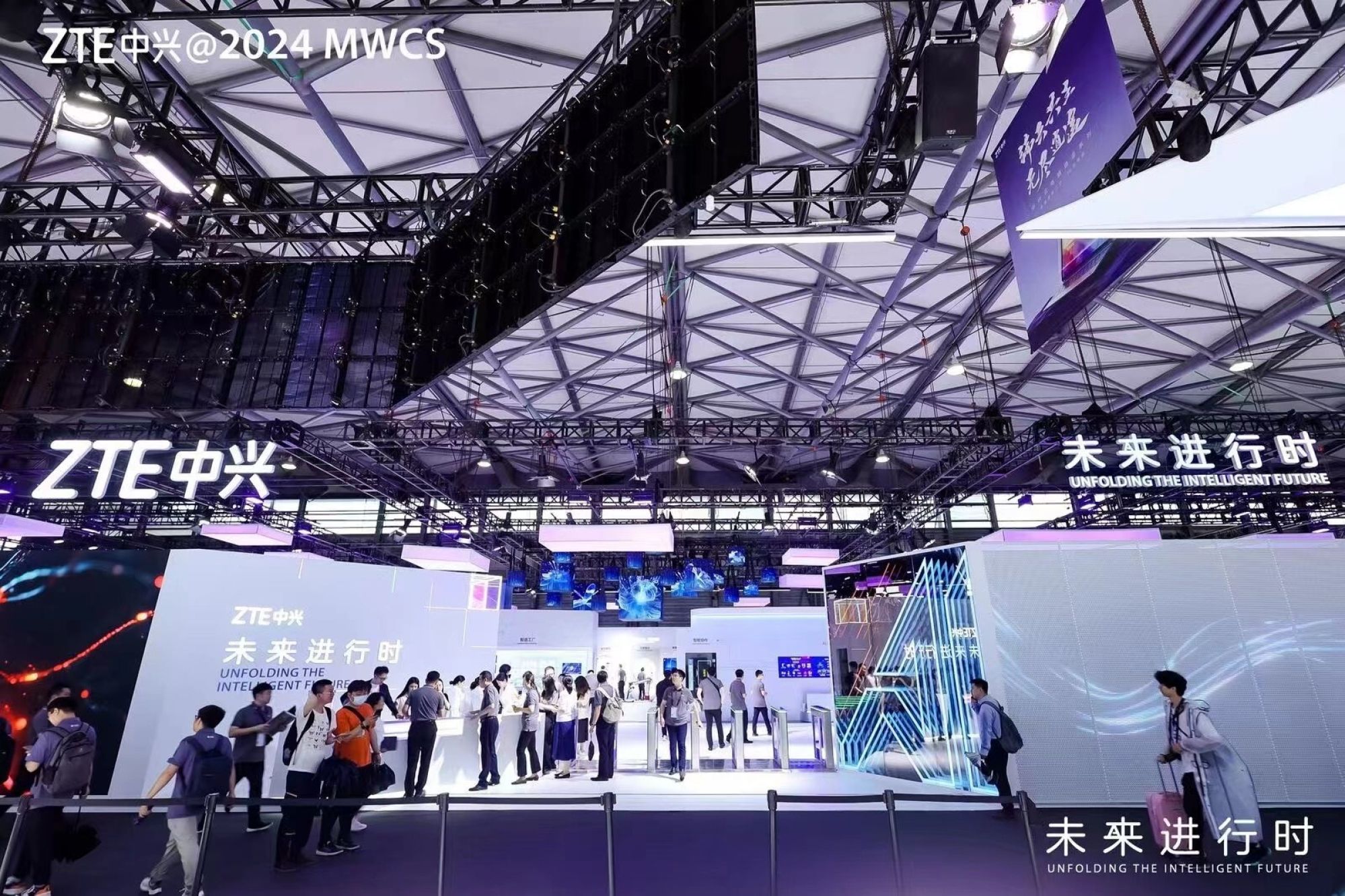Senior executives from China Mobile, China Unicom, China Telecom, Huawei and ZTE presented their AI strategies at the MWC Shanghai trade show. — SCMP
Artificial intelligence (AI) took centre stage at MWC Shanghai, the regional edition of the world’s largest mobile communications industry trade show, as China’s telecommunications network operators and equipment suppliers look to advances in the technology to bolster their businesses.
Senior executives from China Mobile, China Unicom, China Telecom, Huawei Technologies and ZTE Corp presented their AI strategies at Wednesday’s opening of MWC Shanghai, which runs until Friday. The event’s main themes are the “AI Economy”, “5G and Beyond” and “Manufacturing DX”, referring to digital transformation.
China Mobile – the world’s largest wireless network operator by number of subscribers, with 998.44 million at the end of May – is pushing AI initiatives that cover native applications, emerging technologies and so-called future industries, according to chairman Yang Jie’s remarks at the conference.
New AI initiatives form part of a broader trend for telecoms network operators to transform their businesses amid slowing user growth around the world, China Unicom chairman Chen Zhongyue said in his keynote address.

“The traditional business based on network communications is becoming saturated, and the growth in user numbers is slowing down,” Chen said. He cited data showing mobile broadband user growth for major telecoms operators worldwide had dropped to 2.3% at the end of last year, from 34.3% in 2014.
Chen’s remarks were echoed by China Telecom chairman Ke Ruiwen, who said that the company – the world’s largest fixed-line network operator, with 192.84 million wireline broadband subscribers – is now in the process of developing its “service, technology and security-oriented business”.
Ke pointed out that China Telecom is now enhancing the supply of intelligent computing power via its network platforms Huiju, Yunxiao and Xirang. The company is already the mainland’s biggest data centre services provider.
The shift in strategy by three of the world’s largest telecoms network operators reflect their industry’s response to increased demand for AI, which calls for more data capacity, digital infrastructure and related services to serve enterprises and consumers.
That sharpened focus on AI, however, potentially face challenges from the Biden administration’s reported investigation of China Mobile, China Unicom and China Telecom over concerns these firms could exploit access to American data through their US cloud computing and Internet businesses by providing it to Beijing.

For US-sanctioned Huawei, its executives at the event stressed the roll-out this year of networks based on 5.5G technology, marketed as 5G-Advanced, by China Mobile, China Unicom, China Telecom and Hong Kong telecoms services provider HKT. These firms comprise some of the operators belonging to Huawei’s 5G-A Pioneers Programme.
5G-Advanced networks are meant to support advanced applications like AI, while providing enhanced mobility and high reliability. At MWC Shanghai, Huawei also launched a joint initiative for high-quality mobile video development in the AI era with global operators, industry customers and other relevant organisations.
“2024 marked the first year of our 5G-A commercialisation and the first year for AI to enter the (network) terminals,” David Wang, chairman of Huawei’s information and communications technology infrastructure managing board, said on Wednesday. He expected this industry development to “open the era of mobile AI and make intelligent services ubiquitous”.

ZTE, the crosstown rival of Huawei in Shenzhen, highlighted its AI innovations at MWC Shanghai, including a series of eyewear-free 3D products powered by AI and its Nebula Telecom Large Model that can help enterprise clients with digital transformation projects.
Like Huawei, ZTE faces scrutiny in the US. The Federal Communications Commission is moving to prevent Huawei, ZTE and other foreign tech companies from certifying wireless equipment over concerns that they pose a threat to national security, according to a Reuters report last month.
ZTE also touted at the trade show its “AI for All” strategy, which covers a wide range of AI devices. These include smartphones, tablets, laptop and desktop computers, and other mobile internet products.

Honor, the smartphone business spun off from Huawei in 2020, talked up the potential of AI at MWC Shanghai, joining its Chinese peers Oppo, Vivo and Xiaomi in touting this development.
“AI is revolutionising our lives and driving the smartphone industry forward,” Honor chief executive George Zhao Ming said. “On-device AI ... is uniquely positioned to deliver services that are tailored to our preferences.”
Honor rolled out two new offerings at the trade show: an AI-enabled display that can protect eyesight and a deepfake detection feature that alerts users immediately when such an incident occurs.
Tech research firm Counterpoint has forecast global shipments of generative AI-enabled smartphones to exceed 100 million units this year, up from about 47 million in 2023. – South China Morning Post





